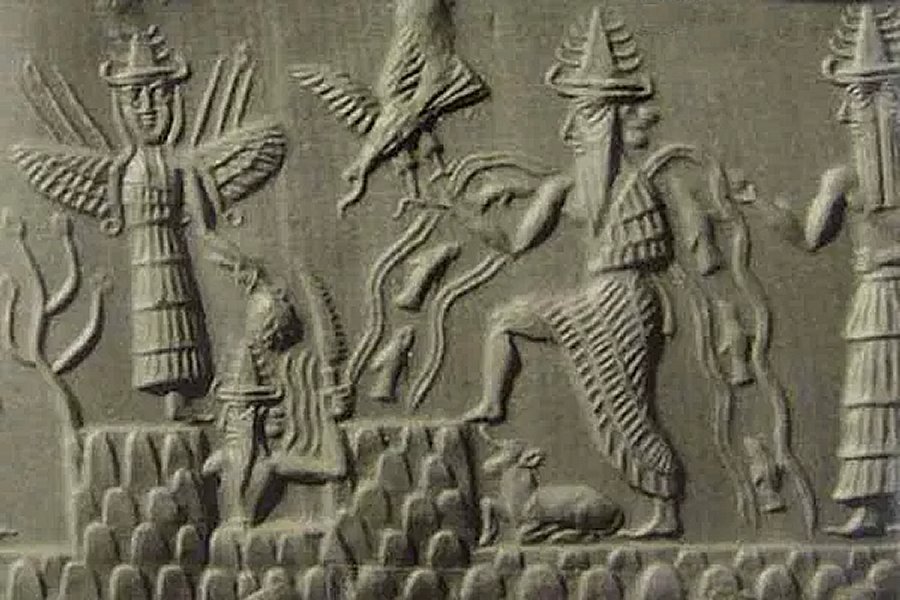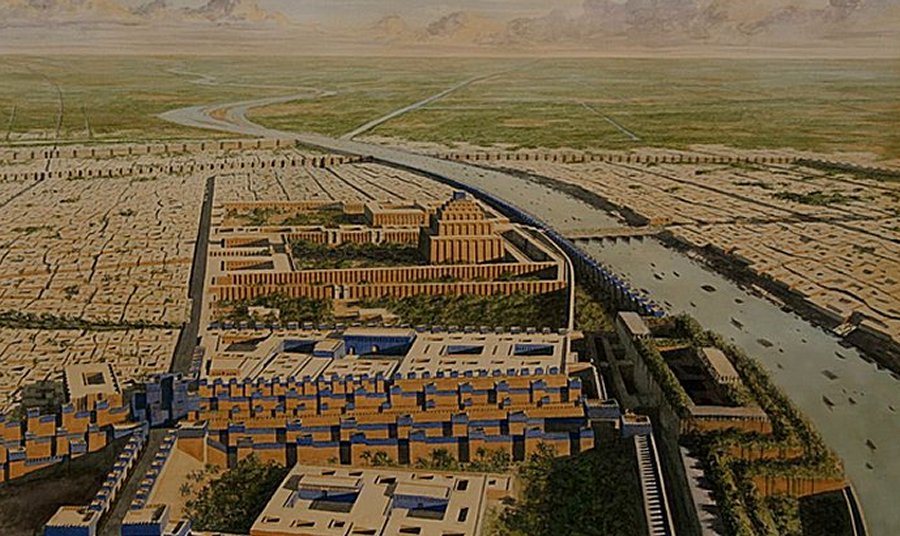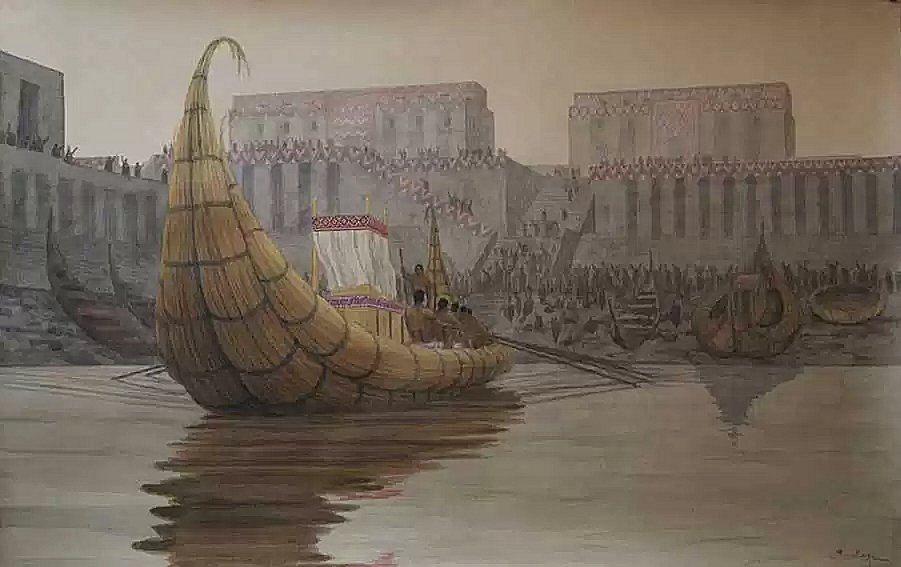Eridu: Pre-Flood City That Belonged To Enki, God Of Creation, Intelligence, Wisdom And Magic
A. Sutherland - AncientPages.com - Modern city Abu Shahrain holds traces of one of the earliest and most sacred cities of the Sumerians – Eridu (E.RI.DU – ‘Home in the Faraway Built’).
According to legend, it was the first city ever established. An ancient Babylonian poem devoted to heroes from the past describes the rise of Eridu as a city:
".... A reed had not come forth,
A tree had not been created,
A house had not been made,
A city had not been made,
All the lands were sea,
Then Eridu was made..."
It was founded by and belonged to Enki, the mysterious god of deep wisdom and magic. Enki was in charge of Earth prior to the arrival of his brother Enlil who is said to have brought civilization to Sumer at this point, or just shortly before.
Also known as ‘Eridug’ (‘mighty place’ or ‘guidance place’), Eridu was located in the desert south of the Euphrates, only 12 km southwest from Ur. Today, it is only a group of hills, covered with sand accompanied by a badly preserved ziggurat built by the son of Shulgi, Amar-Sin ('immortal moon-god') also known as Nanna, and the third king of the Ur Third Dynasty.
Any evidence of earlier inhabitation of Eridu cannot be unearthed because it had been swept away by the Flood.
Eridu was one of the five cities built before the Flood and according to the Sumerian king list, it was the first city to hold kingship.
Unlike the other cities of Sumer, Eridu was not built on sand and mud but in a valley in close vicinity of the Arabian Desert.
Using stone as a building material, made Eridu distinguished from all the other cities in Sumer. The raised platform, on which the city and its temple stood, was faced with a massive retaining wall of sandstone originating in neighboring quarries.
Undoubtedly, the city was once connected with the Persian Gulf, which is confirmed by cuneiform tablets describing Eridu as standing "on the shore of the sea".
In “The Lost Book of Enki” Zecharia Sitchin mentions Endubsar, master scribe, son of Eridu city, servant of the lord Enki, great god. Endubsar confirms that “in the seventh year after the Great Calamity, in the second month, on the seventeenth day, I was summoned by my master the Lord Enki, great god, the benevolent fashioner of Mankind, omnipotent and merciful.
I was among the remnants of Eridu who had escaped to the arid steppe just as the Evil Wind was nearing the city…”
The most important part of the sacred city of Eridu – its urban core - was Enki’s temple ‘House of the Aquifer’ according to cuneiform: E2.ZU.AB; Sumerian: e-abzu. Later, his realm was called ‘House of the Waters’ (cuneiform: E.LAGAB×HAL; Sumerian: e-engur.
The king list says: "When the kingdom came down from heaven, the kingdom was in Eridu." It also says that the first kings of Eridu were indeed long-lived:
The first king of Eridu, and the first king of Sumer, was Alulim, who ruled for 28800 years; Alalngar ruled for 36000 years. 2 kings; they ruled for 64800 years. Then Eridu fell and the kingship was taken to Bad-tibira…”
The kingship continued at Bad-tibira ("Fortress of the Smiths"), identified as modern Tell al-Madineh, located in southern Iraq. It was also one of the pre-Flood cities in the Sumerian King List.
At present, the main ruins remaining from the Third Dynasty of the Ur dynasty occupy an area of about 300 x 400 meters. The oldest settlements date back 5500 years old. Earlier traces of the habitation disappeared in the Flood.
In ancient times, there was a sea line near Eridu and the city was a port situated in the freshwater bay. Currently, the coastline of the Persian Gulf is far more south and Eridu is in the desert.
The modern name of the city is Abu Shahrain.
Written by – A. Sutherland AncientPages.com Senior Staff Writer
Copyright © AncientPages.com All rights reserved. This material may not be published, broadcast, rewritten or redistributed in whole or part without the express written permission of AncientPages.com
Expand for referencesReferences:
Z. Sitchin, The Lost Book of Enki
R. J. Fischer, Historical Genesis: From Adam to Abraham
British Museum
More From Ancient Pages
-
 On This Day In History: Soviet Spacecraft Venera 7 Launched: First To Send Data From Venus To Earth – On Aug 17, 1970
News | Aug 17, 2016
On This Day In History: Soviet Spacecraft Venera 7 Launched: First To Send Data From Venus To Earth – On Aug 17, 1970
News | Aug 17, 2016 -
 Oldest Scandinavian DNA Found In Ancient Chewing Gum
Archaeology | May 15, 2019
Oldest Scandinavian DNA Found In Ancient Chewing Gum
Archaeology | May 15, 2019 -
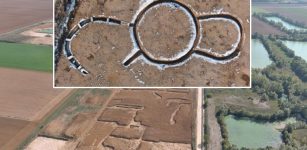 Mysterious Circular Neolithic Structure Used For Unknown Purpose Found In Marliens, France
Archaeology | Apr 16, 2024
Mysterious Circular Neolithic Structure Used For Unknown Purpose Found In Marliens, France
Archaeology | Apr 16, 2024 -
 Red-Headed Alevi In Kurdistan Could Be Guardians Of Watchers’ Secret Knowledge And Shed Light On The Excalibur Legend
Civilizations | Jan 31, 2018
Red-Headed Alevi In Kurdistan Could Be Guardians Of Watchers’ Secret Knowledge And Shed Light On The Excalibur Legend
Civilizations | Jan 31, 2018 -
 Why Did People Start Eating Egyptian Mummies? The Weird And Wild Ways Mummy Fever Swept Through Europe
Featured Stories | Jun 7, 2022
Why Did People Start Eating Egyptian Mummies? The Weird And Wild Ways Mummy Fever Swept Through Europe
Featured Stories | Jun 7, 2022 -
 Parthians: Their Great Empire And Skilled Horse Archers
Civilizations | Nov 10, 2016
Parthians: Their Great Empire And Skilled Horse Archers
Civilizations | Nov 10, 2016 -
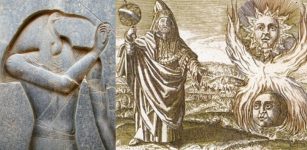 Hermes Trismegistus Brought Divine Wisdom To Mankind – Secret Knowledge Of Hermetica
Featured Stories | Jan 17, 2019
Hermes Trismegistus Brought Divine Wisdom To Mankind – Secret Knowledge Of Hermetica
Featured Stories | Jan 17, 2019 -
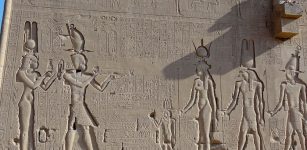 Why The Discovery Of Cleopatra’s Tomb Would Rewrite History
Featured Stories | Nov 16, 2022
Why The Discovery Of Cleopatra’s Tomb Would Rewrite History
Featured Stories | Nov 16, 2022 -
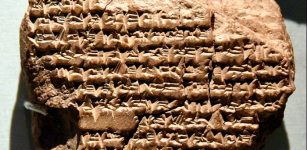 On This Day In History: Battle Of Gaugamela – Alexander The Great Defeats Darius III Of Persia – On Oct 1, 331 BC
News | Oct 1, 2016
On This Day In History: Battle Of Gaugamela – Alexander The Great Defeats Darius III Of Persia – On Oct 1, 331 BC
News | Oct 1, 2016 -
 3,800-Year-Old Wall Relief Created By Ancient Caral People Unearthed In Peru
Archaeology | Aug 28, 2018
3,800-Year-Old Wall Relief Created By Ancient Caral People Unearthed In Peru
Archaeology | Aug 28, 2018 -
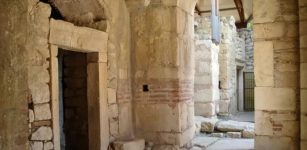 Has The Tomb Of The Real Santa Claus Been Found In Turkey?
News | Oct 5, 2017
Has The Tomb Of The Real Santa Claus Been Found In Turkey?
News | Oct 5, 2017 -
 Praetorian Guard: Roman Elite Unit Assigned To Protect But Also Involved In Confinement, Execution, Spying And Threats
Featured Stories | May 26, 2018
Praetorian Guard: Roman Elite Unit Assigned To Protect But Also Involved In Confinement, Execution, Spying And Threats
Featured Stories | May 26, 2018 -
 Legend Of Tarenyawagon Who Came From The Heavens And Ascended To The Stars In His Fast Flying Shining Canoe
Featured Stories | Feb 25, 2019
Legend Of Tarenyawagon Who Came From The Heavens And Ascended To The Stars In His Fast Flying Shining Canoe
Featured Stories | Feb 25, 2019 -
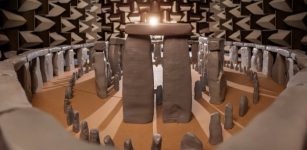 Ancient Sound Of Stones – Acoustics At Stonehenge Tested By Scientists
Ancient Technology | Aug 29, 2020
Ancient Sound Of Stones – Acoustics At Stonehenge Tested By Scientists
Ancient Technology | Aug 29, 2020 -
 Mystery Of Ancient “Magical” Mirrors – Some Of The Strangest Objects In The World
Artifacts | Apr 21, 2011
Mystery Of Ancient “Magical” Mirrors – Some Of The Strangest Objects In The World
Artifacts | Apr 21, 2011 -
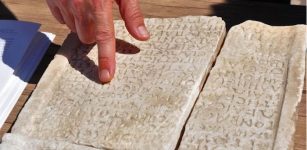 Mysterious 1,800-Year-Old Roman Marble Inscription Found In The Ancient City Of Aigai Deciphered
Archaeology | Oct 5, 2022
Mysterious 1,800-Year-Old Roman Marble Inscription Found In The Ancient City Of Aigai Deciphered
Archaeology | Oct 5, 2022 -
 Christian Church And Large House Unearthed In Ancient Laodicea, A Major Hub Of Christianity
Archaeology | Oct 31, 2020
Christian Church And Large House Unearthed In Ancient Laodicea, A Major Hub Of Christianity
Archaeology | Oct 31, 2020 -
 Unknown Biological Entities And Disturbing Weather Phenomenon In Washington Still Baffle Scientists
Featured Stories | Jul 23, 2019
Unknown Biological Entities And Disturbing Weather Phenomenon In Washington Still Baffle Scientists
Featured Stories | Jul 23, 2019 -
 New Discoveries In Underwater Excavations Of Sunken Cities Of Canopus and Heracleion
Archaeology | Jul 29, 2019
New Discoveries In Underwater Excavations Of Sunken Cities Of Canopus and Heracleion
Archaeology | Jul 29, 2019 -
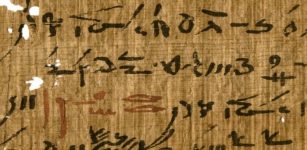 Red And Black Ink Used In Egyptian Papyri Reveal Ancient Writing Practices
News | Oct 27, 2020
Red And Black Ink Used In Egyptian Papyri Reveal Ancient Writing Practices
News | Oct 27, 2020

